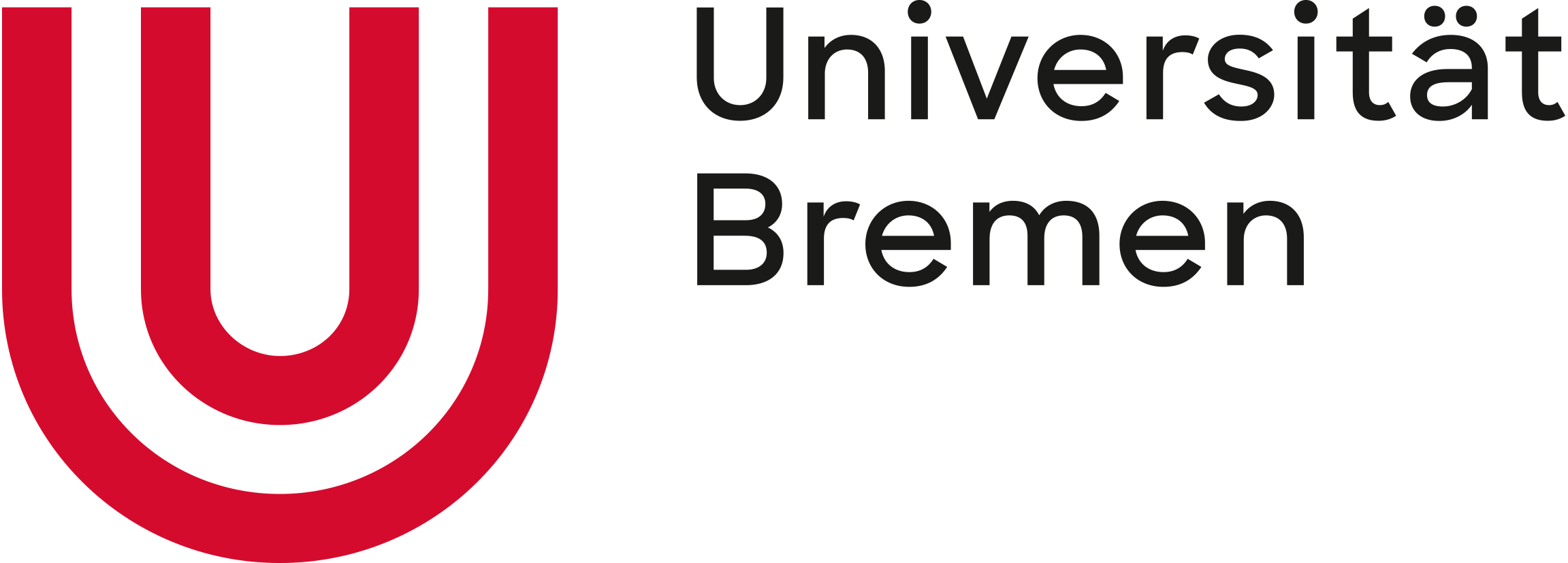Veranstaltung
ILTSS: Anja Gerlmaier & Paul-Fiete Kramer - Shift of Employment and Work Patterns in the Age of Generative AI?
09.01.2025
09. Januar 2025, 11:00-12:00 Uhr, online
Das DIFIS Forschungsfeld 2 „Herausforderungen der modernen Arbeitswelt“ lädt herzlich zur Teilnahme an der vierten Veranstaltung der Interdisziplinären Online-Seminarreihe „New World of Work? – Drivers of the Sectoral Economic Transformation & Implications for Social Policies” ein:
Seminar 4:
Shift of Employment and Work Patterns in the Age of Generative AI? Employee’s Perceptions and Expectations in the Research and Development Area
Dr. Anja Gerlmaier & Dr. Paul-Fiete Kramer | Institut Arbeit und Qualifikation (Institute for Work, Skills and Qualification/IAQ), University of Duisburg-Essen, Germany
Abstract of the Seminar Session:
Generative AI like ChatGPT is increasingly used as a work tool for generating ideas and contents, text correction and modification or to support data analysis and programming. It is expected to significantly impact knowledge professions, particularly in sales, education, and research (Felten et al., 2023). These debates often focus on employment outcomes, with a strong consideration to questions of automation or augmentation scenarios (Gmyrek et al. 2023, Hirsch-Kreinsen/Krokowski 2024) and possible effects of AI with regard to the substitution of human labor (Grienberger et al. 2024).
The authors of the latter study point out that AI could be able to carry out specific tasks automatically or at least enable people without professional expertise to carry out these tasks. However, it is emphasized that it is unlikely that all possible substitution potentials will (be able to) be used immediately in practice. But in the medium and long term, shifts within occupational fields of activity are to be expected and occupational qualification and skill requirements might change. Ultimately, existing labor market and employment structures could come under pressure if occupations ‘break up’ and competition for workers in formerly ‘closed shops’ increases.
However, analysis of socioeconomic data and estimates of theoretical substitution potentials gives little information about employee’s perceptions and practical effects of this transformations in their jobs (Walker 2017). In this contribution we investigate the question, how generative AI will transform work and employment in scientific research areas by taking the employee perspective.
Method: Group discussions within a case study, qualitatively and quantitatively analyzed. Participants: Engineers in production management at a research institute, all using generative AI for their research work.
The analysis of employees‘ perceptions provides an initial indication of changes within the field of high qualified labor and illustrates if and how employees perceive (in)security with regard to their own employment in the context of AI. Our motivation to this contribution is to discuss the results of our group discussions with respect to potential effects of generative AI for future working conditions, employment standards and social security of knowledge workers.
Further information.
Authors Bio & Affiliation:
Dr. Anja Gerlmaier:
Dr. Anja Gerlmaier studied psychology at Ruhr University Bochum and completed her doctoral studies at Technical University of Dortmund in the field of organizational and work psychology. Since 2002 she is member of scientific staff at the Institute for Work, Skills and Training at the University of Duisburg-Essen. Her research focuses on stress and digitalization , occupational health and safety in aging work societies and human centred AI in work systems.
Details: https://www.uni-due.de/iaq/personal/gerlmaier.php
Dr. Paul-Fiete Kramer:
Dr. Paul-Fiete Kramer studied Sociology in Bielefeld and completed his doctoral studies in the field of sociology of work at Ruhr University Bochum. Currently, he is employed as a researcher at the Institute for Work, Skills and Training at the University of Duisburg-Essen. His research focuses on the digitalizazion of work, industrial relations, new forms of employment and platform work.
Details: https://www.uni-due.de/iaq/personal/kramer.php and https://www.researchgate.net/profile/Paul-Fiete-Kramer
Wir bitten um eine Anmeldung über diesen Link.
Weitere Informationen zur inhaltlichen Ausrichtung der Interdisciplinary Lunch Time Seminar Series sowie nähere Hinweise zur Registrierung finden Sie auf unserer Übersichtsseite zur Veranstaltungsreihe.
Wir freuen uns auf den Austausch und Diskussionen zu den Impulsen der Referierenden mit Ihnen!
Das Organisationsteam
Dr. Martin Dietz, Institut für Arbeitsmarkt- und Berufsforschung (IAB), Nürnberg
Prof. Dr. Martin Brussig, Institut Arbeit und Qualifikation (IAQ), Universität Duisburg-Essen
Prof. Dr. Werner Eichhorst, Forschungsinstitut zur Zukunft der Arbeit (IZA), Universität Bonn
Jenny Hahs, Deutsches Institut für Interdisziplinäre Sozialpolitikforschung (DIFIS), Universität Duisburg-Essen
Martin Buchner, Deutsches Institut für Interdisziplinäre Sozialpolitikforschung (DIFIS), Universität Duisburg-Essen
zurück zur Übersicht
Das DIFIS Forschungsfeld 2 „Herausforderungen der modernen Arbeitswelt“ lädt herzlich zur Teilnahme an der vierten Veranstaltung der Interdisziplinären Online-Seminarreihe „New World of Work? – Drivers of the Sectoral Economic Transformation & Implications for Social Policies” ein:
Seminar 4:
Shift of Employment and Work Patterns in the Age of Generative AI? Employee’s Perceptions and Expectations in the Research and Development Area
Dr. Anja Gerlmaier & Dr. Paul-Fiete Kramer | Institut Arbeit und Qualifikation (Institute for Work, Skills and Qualification/IAQ), University of Duisburg-Essen, Germany
Abstract of the Seminar Session:
Generative AI like ChatGPT is increasingly used as a work tool for generating ideas and contents, text correction and modification or to support data analysis and programming. It is expected to significantly impact knowledge professions, particularly in sales, education, and research (Felten et al., 2023). These debates often focus on employment outcomes, with a strong consideration to questions of automation or augmentation scenarios (Gmyrek et al. 2023, Hirsch-Kreinsen/Krokowski 2024) and possible effects of AI with regard to the substitution of human labor (Grienberger et al. 2024).
The authors of the latter study point out that AI could be able to carry out specific tasks automatically or at least enable people without professional expertise to carry out these tasks. However, it is emphasized that it is unlikely that all possible substitution potentials will (be able to) be used immediately in practice. But in the medium and long term, shifts within occupational fields of activity are to be expected and occupational qualification and skill requirements might change. Ultimately, existing labor market and employment structures could come under pressure if occupations ‘break up’ and competition for workers in formerly ‘closed shops’ increases.
However, analysis of socioeconomic data and estimates of theoretical substitution potentials gives little information about employee’s perceptions and practical effects of this transformations in their jobs (Walker 2017). In this contribution we investigate the question, how generative AI will transform work and employment in scientific research areas by taking the employee perspective.
Method: Group discussions within a case study, qualitatively and quantitatively analyzed. Participants: Engineers in production management at a research institute, all using generative AI for their research work.
The analysis of employees‘ perceptions provides an initial indication of changes within the field of high qualified labor and illustrates if and how employees perceive (in)security with regard to their own employment in the context of AI. Our motivation to this contribution is to discuss the results of our group discussions with respect to potential effects of generative AI for future working conditions, employment standards and social security of knowledge workers.
Further information.
Authors Bio & Affiliation:
Dr. Anja Gerlmaier:
Dr. Anja Gerlmaier studied psychology at Ruhr University Bochum and completed her doctoral studies at Technical University of Dortmund in the field of organizational and work psychology. Since 2002 she is member of scientific staff at the Institute for Work, Skills and Training at the University of Duisburg-Essen. Her research focuses on stress and digitalization , occupational health and safety in aging work societies and human centred AI in work systems.
Details: https://www.uni-due.de/iaq/personal/gerlmaier.php
Dr. Paul-Fiete Kramer:
Dr. Paul-Fiete Kramer studied Sociology in Bielefeld and completed his doctoral studies in the field of sociology of work at Ruhr University Bochum. Currently, he is employed as a researcher at the Institute for Work, Skills and Training at the University of Duisburg-Essen. His research focuses on the digitalizazion of work, industrial relations, new forms of employment and platform work.
Details: https://www.uni-due.de/iaq/personal/kramer.php and https://www.researchgate.net/profile/Paul-Fiete-Kramer
Wir bitten um eine Anmeldung über diesen Link.
Weitere Informationen zur inhaltlichen Ausrichtung der Interdisciplinary Lunch Time Seminar Series sowie nähere Hinweise zur Registrierung finden Sie auf unserer Übersichtsseite zur Veranstaltungsreihe.
Wir freuen uns auf den Austausch und Diskussionen zu den Impulsen der Referierenden mit Ihnen!
Das Organisationsteam
Dr. Martin Dietz, Institut für Arbeitsmarkt- und Berufsforschung (IAB), Nürnberg
Prof. Dr. Martin Brussig, Institut Arbeit und Qualifikation (IAQ), Universität Duisburg-Essen
Prof. Dr. Werner Eichhorst, Forschungsinstitut zur Zukunft der Arbeit (IZA), Universität Bonn
Jenny Hahs, Deutsches Institut für Interdisziplinäre Sozialpolitikforschung (DIFIS), Universität Duisburg-Essen
Martin Buchner, Deutsches Institut für Interdisziplinäre Sozialpolitikforschung (DIFIS), Universität Duisburg-Essen









